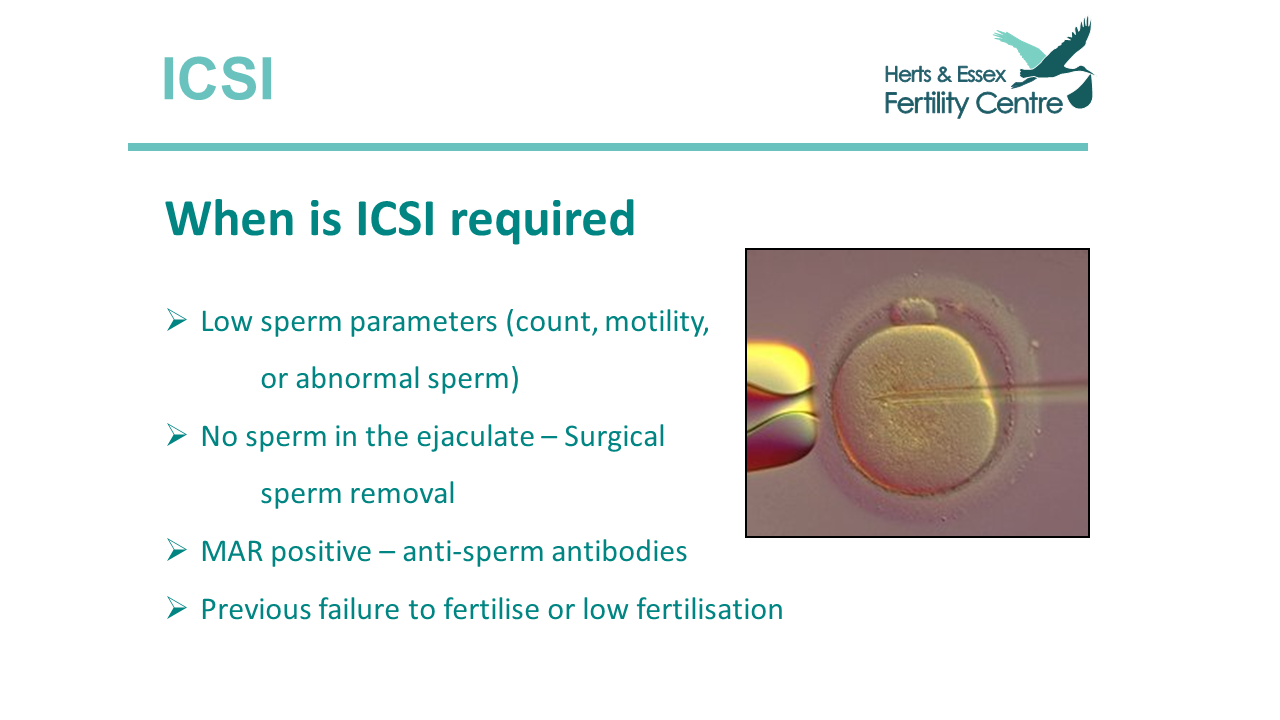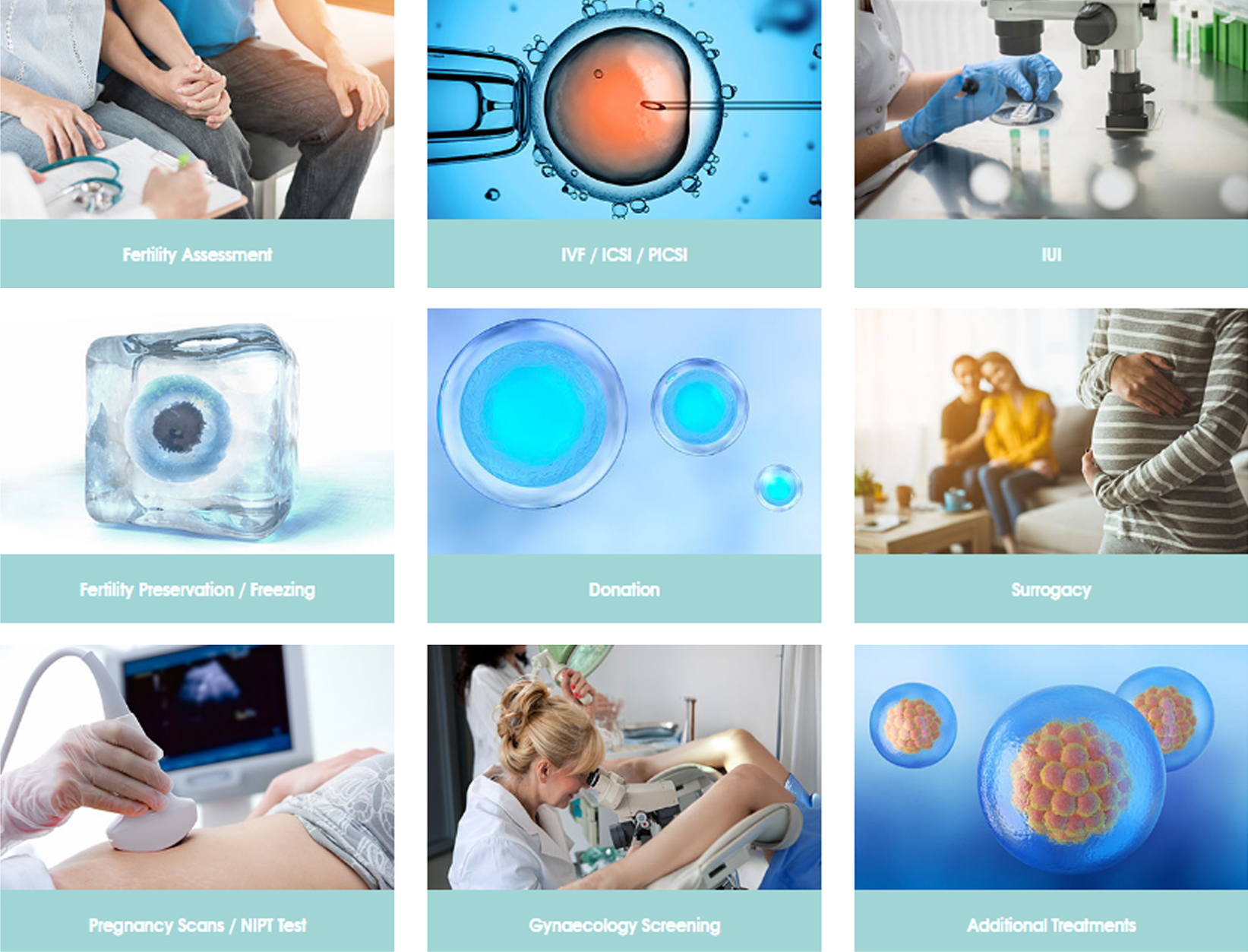2nd November 2022
Fertility
Follow the latest news and developments in the world of fertility.
< View all our fertility news and posts


ICSI (Intracytoplasmic Sperm Injection) is the recommended treatment for Male Factor Infertility and is used to assist sperm to achieve fertilisation. In this blog, Dr. Abha Bhat, Consultant Gynaecologist is doing a deep dive into ICSI and explaining in simple terms what ICSI is and how it works.
ICSI is a specific method used in the laboratory to fertilise eggs. Unlike standard IVF, where the sperm and eggs are mixed together to allow the sperm to fertilise the eggs, in ICSI an individual sperm is injected directly into each suitable egg. ICSI is recommended to people based on their medical history and test results and would be discussed at the new consultation appointment with a doctor.
The results of the semen analysis and both partners’ reproductive history will determine the best fertility treatment option for the fertilisation of eggs.
IVF and ICSI are laboratory techniques by which a single sperm fertilises a single mature egg. The decision as to which treatment is the most suitable for a patient will depend on the quality of the sperm sample you provide on the day of the egg collection. Sperm quality can fluctuate on a regular basis and is usually reflective of lifestyle approximately three months before the sample was produced.
The critical function of sperm is its ability to fertilise an egg. In order to do so, sperm have to first work together and release enzymes to disperse the cells that surround the egg. Only when this happens can the sperm reach the zona – the eggshell. The sperm then vie to burrow through the zona and now reach the egg. When the first sperm penetrates the egg, further sperm entry is blocked by the egg. Meanwhile, the genetic material of the sperm which has penetrated the egg interacts with the genetic material of the egg and fuses with it to form an embryo.
When either the count, mobility or structure of sperm is suboptimal, their ability to fertilise the egg diminishes and this is when this special technique called ICSI (Intracytoplasmic Sperm Injection) is used. With ICSI, a sperm is selected by the embryologist based on its mobility and structure and this sperm is injected into the egg. A special instrument called a Micromanipulator is used to carry out this procedure. Following the ICSI procedure, the injected eggs are incubated overnight and assessed the following morning by one of the embryology team for evidence of fertilisation. The average fertilisation rate following ICSI is similar to IVF with 60-70% of injected eggs being fertilised normally.
Please note that the only difference between ICSI and conventional IVF is the laboratory procedure performed once the eggs and sperm have been obtained. The preparation for the person providing eggs for ICSI is identical to that of IVF. The person providing eggs will be required to undergo viral screening, drug stimulation, ultrasound monitoring, and egg collection, similar to IVF.

NEXT/PREVIOUS:
Your Fertility Journey – PICSI «
Your Fertility Journey – IVF »






